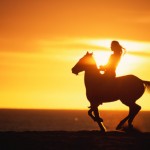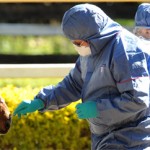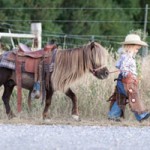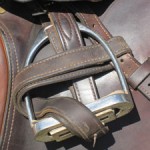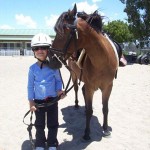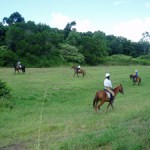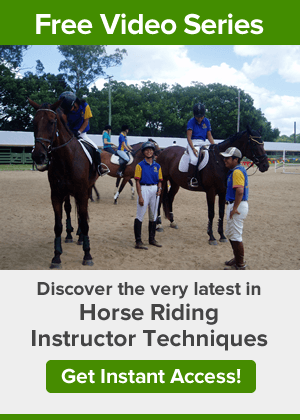I just heard the police minister talking about how rarely a real ‘accident’ happens and that most are caused by preventable actions like drink driving, speeding and fatigue Many horse accidents can also be prevented. Accidents can be caused by unsafe handling and riding, mismatch of horse and rider/handler, inexperienced/ untrained instructors or complete lack of supervision by a competent person So . . . when you are about to do something with your horse, or give an instruction to some-one else about a horse . . . just take a moment to think about what could possibly go wrong and what you could do to make it safer That way, you can prevent those ‘accidents’ happening Happy (and safe) Riding, Glenys :-) … [Read more...]
How many horse ‘accidents’ can be prevented!
Hendra Virus Vaccine
Attention: Horse Owners! Hendra Virus Vaccination Now Available! Australian horse owners received the news on 1st November 2012 that the vaccination Equivac® HeV vaccine was now available. The deadly Hendra virus has claimed the lives of 81 horses. While there is no known cure for Hendra virus, the Equivac® HeV vaccine will assist in breaking the transmission cycle of this potentially lethal virus. Media release Vaccine arrives to boost the fight against deadly Hendra virus Thursday, 01 November 2012 Download this media release as a PDF Brisbane, Australia – 01 November 2012: From today, Australian horse owners and the equine industry will receive an important boost in their fight against the deadly Hendra virus with the … [Read more...]
How to Lunge a Horse
How to Lunge a Horse in Preparation for a Rider It is very important to warm a horse up on the lunge before mounting the rider ready for lungeing exercises. Lunging the horse before mounting the rider will allow the horse to warm up, provide an opportunity for you to check for any lameness (there is nothing more time consuming when lunging a horse than getting the rider settled on the horse only to realise the horse is lame). It is also important for the rider doing the lunging exercises to ensure the horse is not be fresh (excitable). The horse needs to be lunged in walk, trot and canter (even if the rider will not be cantering) by doing so you will make sure the horse will respond to your commands and be controllable in all three paces. If you are going to use lunge rein when … [Read more...]
Make Horse Safety a Priority
Your Safety Horse Checklist in Preparation for Safety Riding & Teaching Horse Safety – The Gear Check Checking the saddlery and equipment (a.k.a gear check) for horse safety and comfort as well as preparation for the rider for comfort and safety riding. This means physically checking the student (and horse if it is a mounted lesson) to ensure it is safe and appropriate for the lesson and of the correct fit and comfortable. It is essential that you are thorough in performing the gear check as a failure to recognise unsuitable or incorrect gear may result in you being liable should an incident occur as a result of unsuitable or incorrect gear being used. If you have saddled the horse then you should be checking these items as you put them on the horse and you should re-check the … [Read more...]
Safety & Confidence with Horses
Would you recognise when your horse is uncomfortable or not happy and is about to use his natural instincts to fix the situation? He may be a lovely quiet horse, but unless you recognise some simple cues and horse body language then you may not be as safe as you think. The good news is that once you understand these signals then building lost confidence and doing it safely is as simple as A, B, C A is for Attitude Having the right attitude is essential and the use of visualization and other NLP techniques is a great benefit if you need to gain your confidence (more about that in another article) B is for Balance Before you can control your horse, your balance needs to be developed so you can use your aids to your best ability with out interfering with your horse. After all, … [Read more...]

